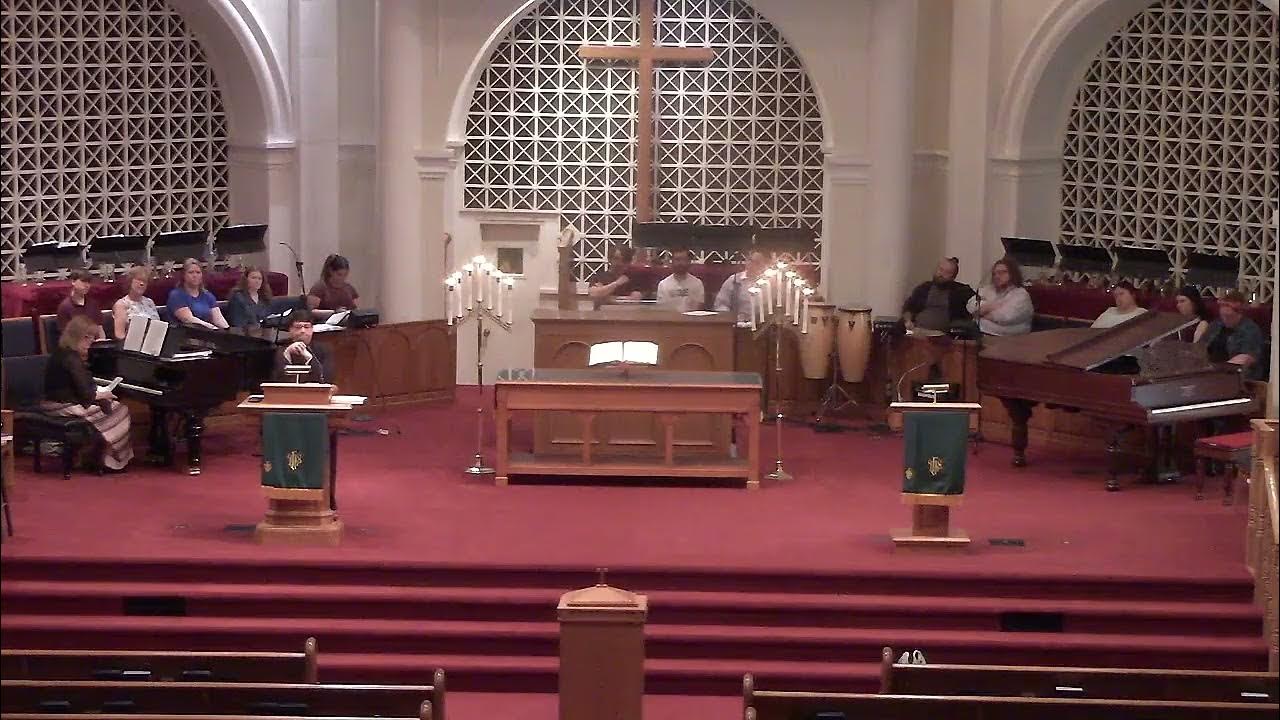ARRANCANDO AS RAÍZES MALIGNAS | BISPO ERASMO DUARTE
Summary
TLDRThe video script discusses the transformative power of the Gospel, focusing on personal growth and spiritual change. The speaker emphasizes that God's message is one of transformation, capable of changing lives, families, and destinies. Through biblical references, like Peter's denial of Jesus, the speaker highlights how fear and internal struggles can hinder faith. The message encourages believers to allow God to remove negative influences from their lives and to stay committed to spiritual growth, trusting in His transformative work. The call to action is to march forward in faith, seeking God's face for continued transformation.
Takeaways
- 😀 The Gospel is a message of transformation, capable of changing lives, families, and destinies.
- 😀 Fear, as seen in Peter’s denial of Jesus, can hinder believers from fully embracing their faith and calling.
- 😀 The Gospel empowers individuals to overcome obstacles, including fear, and live with conviction.
- 😀 Personal transformation requires the removal of negative roots and influences in one’s life, allowing God’s work to take place.
- 😀 There are internal conflicts and negative forces that compete with God’s presence in believers' lives.
- 😀 A true relationship with God involves loving Him and being unwavering in that commitment.
- 😀 God is actively working to uproot evil influences from believers’ hearts, replacing them with His divine presence.
- 😀 Perseverance in faith and seeking God’s face are essential in continuing the work He has started in believers’ lives.
- 😀 The transformation process involves both individual and collective efforts within the faith community to support one another.
- 😀 The Gospel's power is not only personal but also collective, as it has the capacity to transform families, relationships, and communities.
Q & A
What is the central theme of the script?
-The central theme of the script is the transformative power of the Gospel. The speaker emphasizes how the Gospel can change lives, families, marriages, and even future generations.
How does the speaker relate Peter's actions to the message?
-The speaker references Peter's denial of Jesus, explaining that it was driven by fear. This is used as an example to highlight how fear and other negative influences can hinder one's relationship with God, despite a deep love for Him.
What does the speaker say about internal struggles?
-The speaker suggests that, even though people may love God, there are internal struggles and forces—such as fear and evil roots—that can compete with God for one's attention and devotion. These need to be removed to allow God's work to flourish.
What role does transformation play in the message?
-Transformation is a key aspect of the message. The speaker highlights that the Gospel is meant to change individuals from the inside out, addressing deep-rooted fears and sinful influences, and replacing them with divine qualities.
How does the speaker encourage the audience to respond to these challenges?
-The speaker encourages the audience to continue seeking God's presence and strength, to march forward in their faith, and to allow God to complete the work He has started in their lives. The audience is urged to be persistent in their journey of transformation.
What does the speaker mean by 'evil roots'?
-'Evil roots' refer to negative, sinful, or harmful influences within a person that hinder spiritual growth and connection with God. These roots must be removed for the individual to fully embrace God's work and transformation.
How does the speaker describe the impact of the Gospel on people's lives?
-The speaker describes the Gospel as powerful enough to bring about significant change—transforming people, families, marriages, homes, and even future generations. The Gospel is seen as a catalyst for positive, divine transformation.
What does the speaker say about the relationship between love for God and fear?
-The speaker acknowledges that many people love God deeply but may struggle with fear—such as the fear of suffering or losing their life. Fear can cause people to deny or distance themselves from God, as seen in Peter's example.
What is the significance of the phrase 'marching towards God' in the script?
-The phrase 'marching towards God' signifies a continuous, determined pursuit of God's presence and guidance. It suggests an active, forward-moving commitment to living a life that aligns with God's will, despite challenges or fears.
What is the final call to action in the script?
-The final call to action is for the audience to raise their hands in acknowledgment of their love for God and to embrace the transformation that God is working within them. The speaker also invites the audience to pray and continue with strength in their spiritual journey.
Outlines

This section is available to paid users only. Please upgrade to access this part.
Upgrade NowMindmap

This section is available to paid users only. Please upgrade to access this part.
Upgrade NowKeywords

This section is available to paid users only. Please upgrade to access this part.
Upgrade NowHighlights

This section is available to paid users only. Please upgrade to access this part.
Upgrade NowTranscripts

This section is available to paid users only. Please upgrade to access this part.
Upgrade NowBrowse More Related Video
5.0 / 5 (0 votes)





